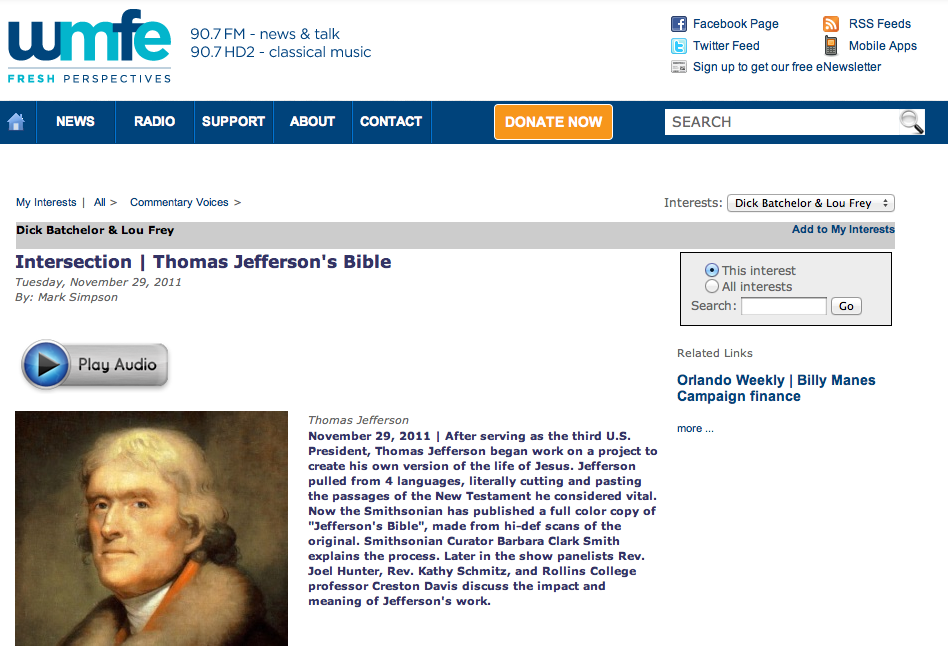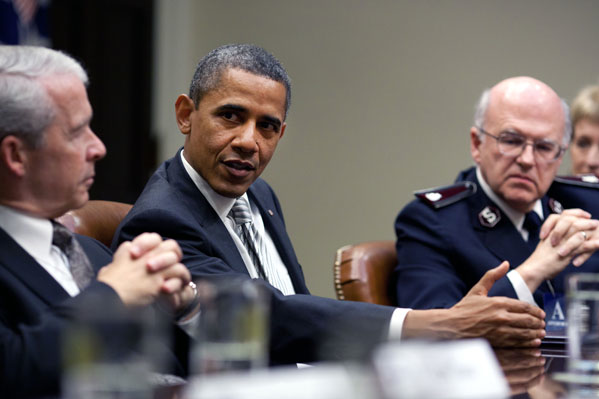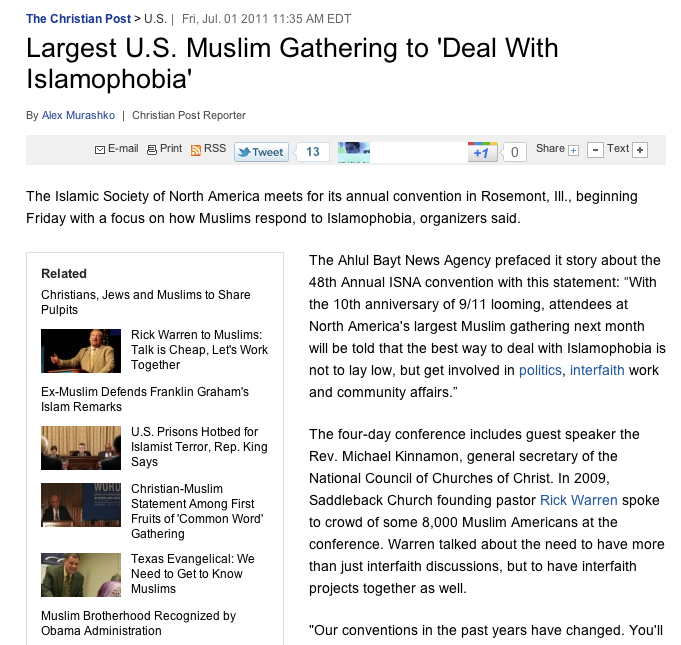 In 1976, skeptical Jews in the Northeast and on the West Coast had to be convinced by their Southern cousins that Jimmy Carter, a “born-again” Georgia Baptist, was not too strange to support as the Democratic nominee for president. For a time, Jews made their peace with this growing American phenomenon called evangelical Christianity.
In 1976, skeptical Jews in the Northeast and on the West Coast had to be convinced by their Southern cousins that Jimmy Carter, a “born-again” Georgia Baptist, was not too strange to support as the Democratic nominee for president. For a time, Jews made their peace with this growing American phenomenon called evangelical Christianity.
A good deal has changed since then, especially after conservative evangelicals amassed unprecedented access and influence under President George W. Bush and a Republican Congress, pushing a political and cultural agenda most Jews found uncomfortable.
As a result, beginning in 2006 and every two years since in the run-up to the presidential and off-year congressional elections, books and articles suddenly appear — often written by Jews — about the menace and weirdness of evangelical Christianity.
Though some of the writers hail from Brooklyn or Washington, D.C., the tone is what I’d call “Upper West Side hysteric,” a reference to the fabled New York City neighborhood. The thrust of the writing is that these exotic wackos — some escaped from a theological and ideological freak show — are coming to take our rights and freedom.
Connecting the dots
Chief among these are books such as Michelle Goldberg’s Kingdom Coming: The Rise of Christian Nationalism, Rabbi James Rudin’s The Baptizing of America, and several titles by Sara Diamond.
These days, it’s hard to turn to liberal websites, public radio or MSNBC without encountering some “investigation” or “exposé” of a splinter, marginal figure, such as David Barton or John Haggee, from the evangelical world — followed by some tenuous if not tortured connect-the-dots link to a presidential or congressional candidate. Most recently, Rachel Tabachnick’s Web piece on the New Apostolic Reformation has generated ink and air.
I’m as left wing a Democrat as they come, and I have lived among and reported on evangelicals for nearly 20 years. Let me tell you, this sensational, misleading mishegas has got to stop.
The truth is, the political center of gravity of American evangelicals is in the Sun Belt suburbs, not in rural Iowa, much less Wasilla, Alaska. Think Central Florida’s vaunted ‘I-4 Corridor,’ critical to carrying this swing state, where the last GOP presidential debate was held in Tampa and the next one will take place this week here in Orlando. These evangelicals are, by and large, middle-class, college-educated and corporate or entrepreneurial.
Yes, they tend to vote Republican and oppose gay marriage — although there is a growing generation gap on these issues among younger evangelicals, according to recent Pew Center studies.
“We evangelicals cringe like everyone else at the prominence given to marginal groups labeled with our name,” says the Rev. Joel Hunter, an influential megachurch pastor in Orlando and an ideological centrist. “We know their numbers are small and their influence is grossly exaggerated, but we are not surprised that the majority of common-sense believers are not given equal attention in a society fascinated by extremes.”
Most evangelicals accept some form of evolution and do not subscribe to arcane doctrines, such as “Christian Reconstructionism” and “Dominionism,” that Christians need to rule the world in order to bring about the Second Coming of Jesus. And, contrary to recent writing by some progressive Jews, most evangelicals are comfortable with the notion of theological tolerance and religious pluralism. “The media have been too eager to feature a simpleton image of evangelicals,” says Hunter. “Our part of the faith community is, on the whole, intelligent, accepting of diversity, and wanting the best practical solutions for the common good.
“When a majority of evangelicals hear about some of these theological oddities, it’s like our crazy Uncle Harry got out of the home and ran into city hall wearing a shirt with the family name,” the pastor. “We love him, but he misrepresents us.”
Not so sure Hunter is right? In 2008, analysis suggests enough evangelicals voted for Obama — or stayed home — for the Democrats to carry key swing states such as Florida, North Carolina and Virginia. They are as likely to vote for Republican women as liberals will vote for Democratic women. Evangelicals may be more likely to accept women in the pulpit of large congregations than those in mainline denominations.
Turning the tables
Ironically, the Jewish left is not alone in its self-serving myopia when it comes to evangelicals. Politically conservative, single-issue Jews embrace unquestioning evangelical support for Israel, brushing aside differences over reproductive and gay rights, stem cell research, and especially the separation of church and state. On the incendiary issue of evangelical support of Messianic Jews whose goal is converting the rest of us, including those in Israel, right-wing Jews put their fingers in their ears and shout, “LA-LA-LA!”
If, as Jews, we replace the old caricature of hayseed fundamentalist mobs carrying torches and pitchforks with one of dark conspirators trying to worm their way back into political power at the highest levels, we run the risk of accusing them of doing to others what we are doing to them: demonizing. We didn’t like it when people said we had horns and tails, ate the blood of Christian children and poisoned the wells of Europe with plague, much less conspired to rule the world through our Protocols.
“Evangelicals in the main want the same kind of common-sense solutions and moral integrity as other Americans,” Hunter says. “We do not want to use political means for our faith’s advancement; we just want to vote our values and leave it at that.”
Mark I. Pinsky, former religion writer for the Orlando Sentinel and Los Angeles Times, is author of A Jew Among the Evangelicals: A Guide for the Perplexed.
READ THIS ARTICLE HERE: http://www.usatoday.com/news/opinion/forum/story/2011-09-18/evangelical-christians-republicans/50457192/1
 A decade after Thomas Jefferson left office, the nation's third President started working on a project compiling the four gospels of the Bible's New Testament into a book that removed supernatural parts Jesus' life. It came to be known as "The Jefferson Bible." The work was recently published by the Smithsonian Institution. NPR affiliate WMFE invited a panel of religious leaders and scholars to discuss the meaning and impact of Jefferson's biblical revisions. Here, Pastor Joel Hunter talks about what happens to Christianity if miracles like the Virgin Birth and the Resurrection are removed from the faith. CLICK TO LISTEN.
A decade after Thomas Jefferson left office, the nation's third President started working on a project compiling the four gospels of the Bible's New Testament into a book that removed supernatural parts Jesus' life. It came to be known as "The Jefferson Bible." The work was recently published by the Smithsonian Institution. NPR affiliate WMFE invited a panel of religious leaders and scholars to discuss the meaning and impact of Jefferson's biblical revisions. Here, Pastor Joel Hunter talks about what happens to Christianity if miracles like the Virgin Birth and the Resurrection are removed from the faith. CLICK TO LISTEN.






